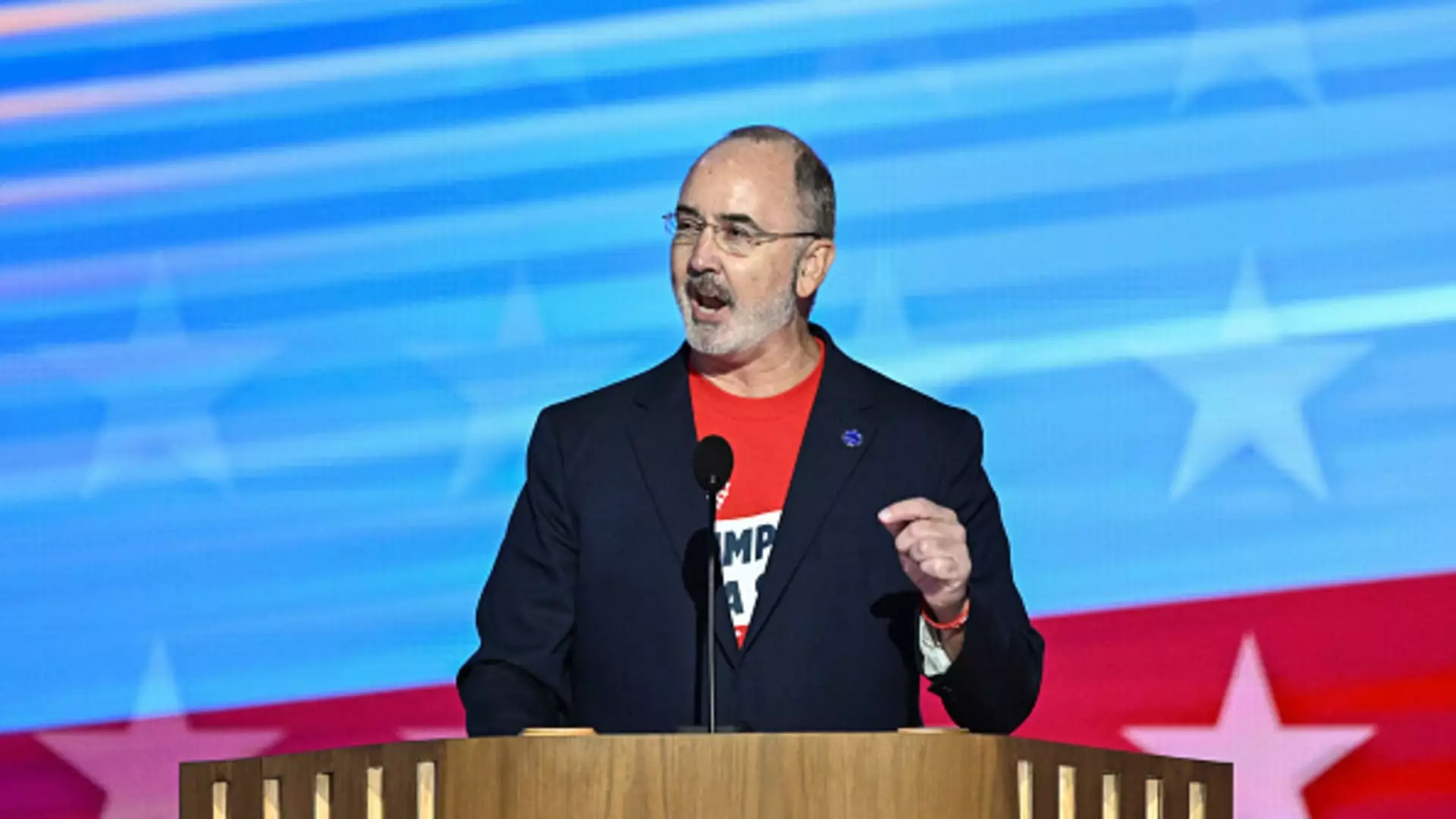In a political landscape that rarely sees dramatic shifts, Shawn Fain, the President of the United Auto Workers (UAW), has emerged as an unexpected backer of President Donald Trump’s tariff policies. Once an outspoken critic of Trump, Fain has adjusted his stance to advocate for the implementation of 25% tariffs on automobiles and related parts. This surprising turn not only highlights the complexities of political relationships but also reflects the shifting pressures facing American labor and industry today. Fain stated that “tariffs are an attempt to stop the bleeding from the hemorrhaging of jobs in America for the last 33 years,” indicating a recognition that the problem of job losses cannot be addressed solely through traditional labor negotiations or union strikes.
This evolution in Fain’s stance necessitates a closer look at why a union leader, often seen at odds with corporate interests, would support tariffs historically associated with protectionism. Fundamentally, Fain’s argument rests on a belief that tariffs could create necessary breathing room for American workers by discouraging the rampant offshoring that would otherwise drain the industry of jobs while promoting a revitalization of domestic production.
Tariffs: A Double-Edged Sword
Despite being celebrated by some, tariffs can have adverse effects that warrant caution and deep analysis. The UAW’s support for tariffs could push consumers to bear the weight of increased prices for vehicles and parts, generating a burden that could undercut the purchasing power of working-class Americans. Fain maintains that any extra costs incurred by the tariffs should be managed by corporations. However, historical precedents indicate that businesses often pass on these expenses to consumers, raising concerns about inflation and affordability in an already strained economy.
Ford CEO Jim Farley and other industry leaders have urged that tariffs exacerbate chaos within the market, warning that this unpredictability would ultimately stifle investment, innovation, and a competitive environment. The paradox lies in that while tariffs could potentially protect American jobs, they unavoidably introduce complexities that could jeopardize the very progress Fain aims to achieve.
A Fragile Compromise
The rare collaboration between UAW and Trump’s administration represents a compromise that speaks volumes about the current state of the automotive sector in America. Despite Fain’s previous battles with the Trump administration, he now finds common ground with the very policies he once fiercely opposed. The statement released by the UAW underscored the organization’s shift, emphasizing downplaying the economic implications of tariffs and framing Trump’s actions as a much-needed approach to rectify past trade injustices—also known as a “free trade disaster.”
Fain asserts, “There’s been a lot of talk about these tariffs ‘disrupting’ the economy.” This could be interpreted as a strategic positioning, aiming to placate both corporate America and workers concerned about job security. Remaining relevant in negotiations means adopting a more collaborative approach with the administration, a move that underscores the pressures that labor unions are under to adapt to modern economic realities.
Balancing Act: Corporate Interests vs. Worker Rights
Now facing federal oversight due to previous leadership’s misconduct, Fain’s UAW represents a union at a pivotal juncture. With public sentiment shifting toward a demand for transparency and accountability, Fain has adopted a pragmatic stance. He acknowledges that the stakes are high, stating, “The election is over. Donald Trump is the president, and we want to get to work to fix the problems that are wrong with this country.”
Despite Fain’s supportive rhetoric surrounding tariffs, tensions still exist among industry leaders regarding the potential long-term implications of such policies on growth, innovation, and global competitiveness. Companies such as Ford illustrate the precarious position that corporations hold: caught between the demands of tariffs and the necessity of a robust market presence.
While Fain’s approval of tariffs could signify a new model of collaboration between labor and government, the broader implications raise pressing concerns. Tariffs, often perceived as tools for protection, can inadvertently dismantle the foundation of economic stability, leading to higher prices, reduced investments, and ultimately straining the very workers they aim to protect. The auto industry is at a crossroads: navigating the dual challenges of safeguarding jobs while fostering an environment conducive to growth and innovation. The question remains: will this unexpected alliance benefit the workers, the industry, or simply be a temporary political gesture?

